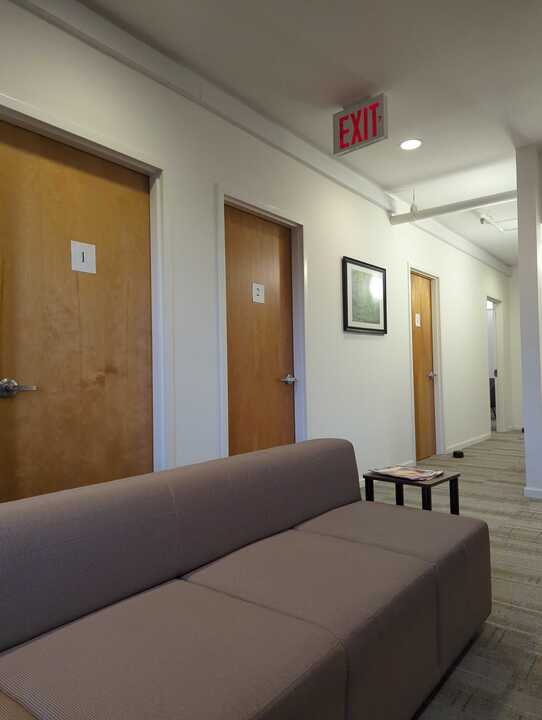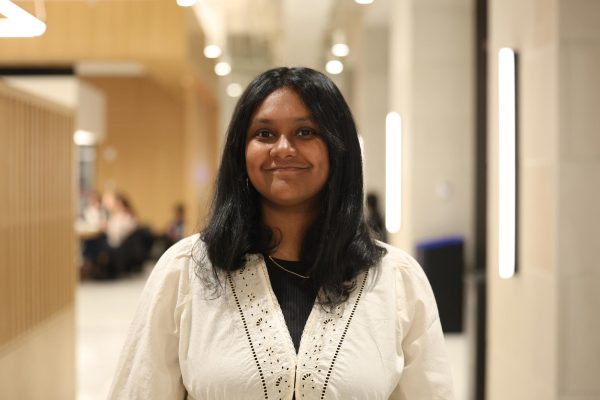Situated a block away from Fordham University’s Walsh Gate, the Fordham Community Mental Health Clinic (FCMHC) is a relatively recent Fordham initiative to provide services to the Bronx — one of the most underserved regions when it comes to mental health care. Run by the Fordham psychology department, the clinic provides free or low-cost mental health services to Bronx residents. The program also serves as the training site for psychology doctoral students, who provide care under the supervision of licensed clinical psychologists.
Dr. Alexander Kriss, director of FCMHC, joined Fordham as an associate clinical professor of psychology to oversee the mental health clinic and supervise the training of graduate students. He joined in fall 2021 when the clinic transitioned to being in person after the COVID-19 pandemic when services were carried out largely virtually.
“I think that one of the reasons why I was so excited to take this job is that the clinic, when I came into Fordham, was in such a state of potential — it was so new, and it never really had a chance to grow because of the [COVID-19] pandemic… This felt like a really unmolded clay that the faculty and students could shape into something that really makes sense for [a] contemporary clinical psychology department in the Bronx,” said Kriss.
FCMHC opened in January 2020, after roughly a decade of planning, organizing and advocating by the Fordham clinical psychology department. In March 2020, because of the challenges posed by COVID-19, the clinic shifted to a virtual platform and continued until September of the following year. The virtual nature of the clinic helped provide services to a variety of locations within New York State. Currently, the clinic provides both in-person and virtual services to clients, which has enabled them to focus their efforts on Bronx clientele.
“Now that we’re physically located and really trying to emphasize doing in-person work, I feel like we’re getting closer and closer to really fulfilling our intended mission, which is to provide these services to Bronx residents — which is one of the most underserved communities in the city and the state in terms of mental health services,” said Kriss.
Kriss noted that the number of clients has nearly quintupled in size since 2021, saying, “It went from my first year [of] having a maximum of maybe five or six clients that we were seeing at a time to now seeing 25 to 35 people at a time, across these different teams and in these different modalities.”
Doctoral students, clinical professors and even undergraduate students are involved in the operations of the FCMHC. Student workers are responsible for the scheduling and billing that keeps the clinic running. The clinic also recently welcomed its first undergraduate intern last fall. Teams of clinical psychology graduate students provide clinical care across several categories, including child, adolescent and adult psychotherapy as well as providing assessments and diagnostic evaluations. These teams are each supervised by different faculty members, who guide the psychology students as they meet with patients. Kriss notes the importance of preparing students to provide standards of care while thinking in a community mental health framework.
“This isn’t a research lab environment where only very specific people are coming through our doors; anybody, specifically in the Bronx and but even beyond in New York City, who can’t afford therapy elsewhere might be giving us a call, so we kind of have to be ready for everything.”
In the future, Kriss hopes that the FCMHC will foster new initiatives through collaboration between psychology faculty and community partners.
“I’d love for the clinic to not just sort of have a preset menu that people choose from but for us to actually learn more about what needs the community has so we can build around that, and really be a clinic by and for the Bronx,” said Kriss.









































































































































































































